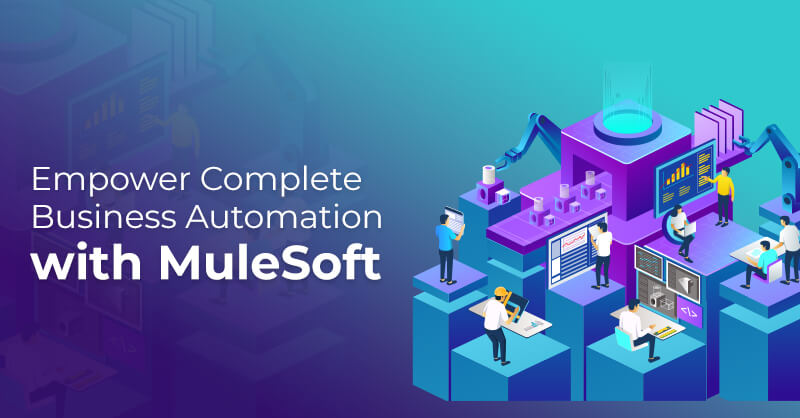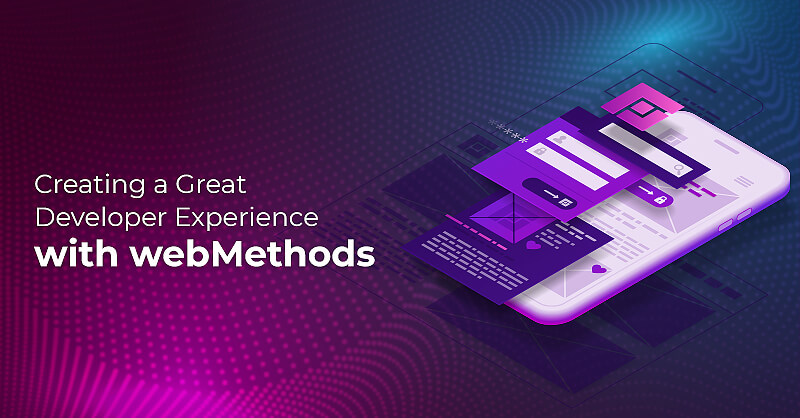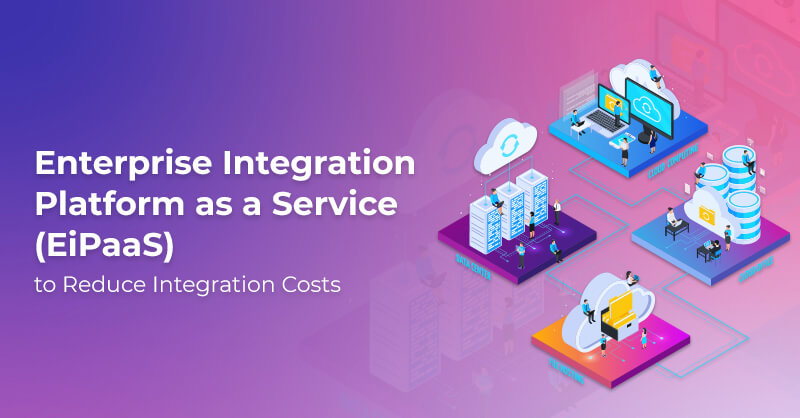Solutions for B2B Integrations: On-Premises, Hosted, Cloud, Hybrid
Written by Pranita Navrekar
Business Analyst at Royal CyberThe field of B2B integration software and solutions is not new. Over the years, it has progressed significantly. Here are a few of the different integration delivery mechanisms you may want to consider, along with some factors to help you decide the right software for your business.
Delivery Mechanisms for B2B Integration
You may find that the capabilities you need are already provided by your integration tool. Your options may need to be reconsidered if that is the case. Options include:
On-Premises - In-house integration software installed on an organization's servers
Hosted Private Cloud/SaaS - Integration software installed on a remote server
Cloud Computing - Software that integrates applications over the Internet
Hybrid Cloud - Functionality combining two or more of the above
On-Premise Software
A company's data security is always paramount, regardless of whether it puts its applications on the cloud or keeps them on-premises. Some businesses, however, who operate in highly regulated industries, already know that they must house their applications on-premise.
Advantages
- Security - You have complete control over the software on your server.
- Performance - When you live in an area with limited or poor internet access, it is best to run software locally.
- Features - Software designed for on-premise installation may come with more features than web-based software. This is because this software has existed longer than the web-based version and has had more development input over the years.
Challenges
- Infrastructure - Software requires appropriate hardware to run. There will be a considerable cost for this, and you will probably have to replace it after five years.
- Cost - You usually have to pay for the software up front, and it will also be more expensive than SAAS software, and the software will need to be maintained annually as well.
- Security - Make sure that backups, updates, and other routine maintenance techniques are done and applied to machines/servers/software to ensure the system continues to perform efficiently.
Hosted Private Cloud/SaaS
In a hosted private cloud, your data servers are hosted in the cloud of a company that provides Software as a Service (SaaS). In other words, you have an outside team of experts managing your platform for you.
Advantages
- Immediacy - Most of these software packages are available for an online subscription, and you can begin using them immediately.
- Low Upfront Cost - Initially, this service is considerably cheaper, as you are paying for a service rather than purchasing it.
- Minimal Infrastructure - You do not need a lot of infrastructure since the software is hosted on someone else's server.
Challenges
- Internet Connection - The reliability of your internet connection will be crucial for this solution to work
- Transparency - You are unaware of where and how your data is stored, how well it is protected, or how frequently backups are performed.
- Less Control - Since someone else is in charge of the software and updates, you will not have much control over that.
Cloud Computing
There is one major difference between cloud computing and on-premises software. Unlike an on-premises environment, where the company hosts everything itself, a cloud environment has a third-party service provider power the platform.
With cloud computing, an application is hosted offsite via virtual technology.
Advantages
- High Speed - Cloud computing has dramatically transformed the agility and speed of software development by enabling users to spin up new cloud computing instances instantaneously.
- Efficiency and Cost Reduction - The benefit of cloud infrastructure is that you do not have to spend big money on equipment purchase and maintenance.
- Data Security - Data security is a fundamental concern for every organization, no matter how big or small. Cloud computing offers numerous advanced security features that provide a safe and secure environment for data.
Challenges
- Data confidentiality risk - Ultimately, there is a chance that data can get into the hands of other people.
- Requires stable internet access - Cloud computing can only be accessed via the Internet.
- Security level - There are many things in cloud computing that are uncertain, including privacy and security. Our data security and confidentiality are fully entrusted to the cloud service providers when we use cloud computing.
Hybrid Cloud
Lastly, you have the option of hybrid cloud. You can see from the line-up that this choice is a mix of on-premise solutions and hosted cloud solutions. This one is more reliable as compared to on-premises and the others.
Advantages
- Reduced costs - Hybrid cloud technology may be an investment up front, but it will provide plenty of cost savings in the long run.
- Control, performance, and scalability in one package - By opting for a hybrid cloud, you can take advantage of the scalability of public cloud environments without giving up control entirely.
- Deployment speed - With a hybrid cloud, you can optimize speed by tailoring it to your organization's needs.
Challenges
- Security - Cloud hybrids are inherently prone to many security vulnerabilities due to their nature.
- Visibility - It is a complex process to maintain visibility over a hybrid cloud service. This can add to the cost since there are more idle instances.
- Investment - The enterprise cloud can be built using a hybrid cloud, but it requires significant investment for its operations.
Sterlings Integration Solutions can Help you
Leading companies around the world have relied on Sterlings Integration Solutions for end-to-end B2B integration services. No matter what type of industry or business you represent, Sterlings can tailor the B2Bi set up to meet your needs.



